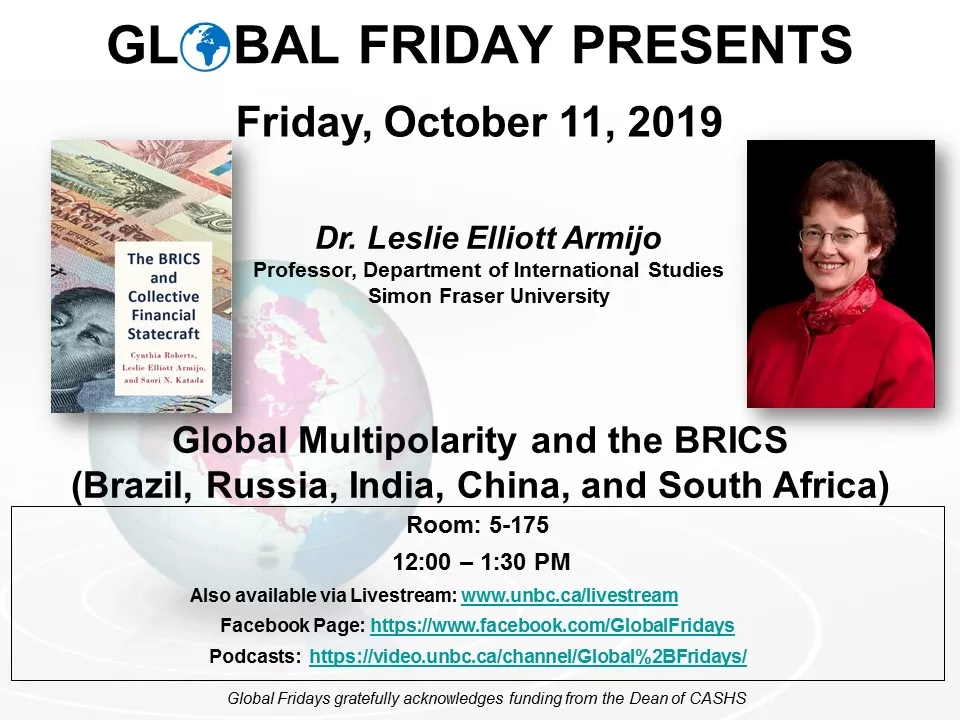Global Multipolarity and the BRICS (Brazil, Russia, India, China, and South Africa)

Dr. Leslie Elliott Armijo
Professor, Department of International Studies
Simon Fraser University
ABSTRACT: In 2006, four disparate emerging powers, which the investment bank Goldman Sachs had a few years previously grouped together as hot destinations for footloose global capital, came together at the behest of the Russian foreign minister and formed an unlikely, but exclusive global club. The BRICs (later BRICS), despite disparate domestic politics and bilateral suspicions, found themselves able to cooperate around common goals, and to act as an effective caucus in other international fora, notably within the deliberations of the Group of 20 large economies during the global financial crisis of 2008-09. Yet since about 2016 the group's achievements have been modest. Armijo's analysis points to shifts in several countries' domestic politics, but also to structural shifts in international relations more generally. As the world becomes more multipolar (or bipolar/multipolar), she argues, the evolving relationship among and between China and the United States will shape the future of the BRICS, as well as that of the remaining larger countries of the Western Hemisphere.
Also available via Livestream
Global Friday gratefully acknowledges funding from the Dean of CASHS.